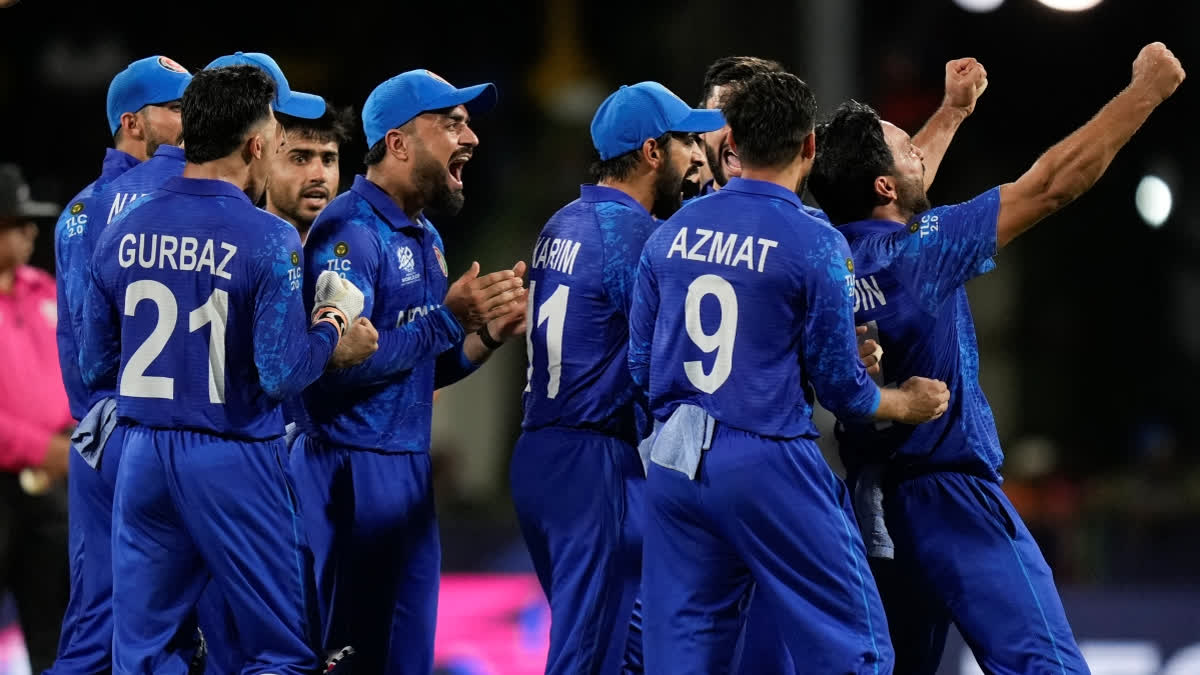Tarouba(Trinidad): The proud Afghans led by Rashid Khan broke down; they cried; they sobbed; they hugged, and they took victory laps — the proudest moment in their life perhaps, a well-fought, well-earned, well-deserved entry into the semi-finals of a T20 World Cup. It was almost as if the purest form of passion propelled the last two wickets in the last over. It could have gone any which way — 9 runs in 8 balls.
But Bangladesh could not stand up to the fierceness and ferocity of intent of Khan's band of warriors; they could not face the backroom manoeuvres of homeboy and bowling consultant of the Afghanistan team, Dwayne Bravo. When Afghanistan showed an unusual inertia with the bat scoring just 80 odd runs in 15 overs, it seemed they would lose and Australia would get a back door entry into the semis, after all.
At the Guyana airport, every passenger stopped to watch the match and cheered for Afghanistan like never before, at midnight. The fans were Indians, West Indians, Brits and a whole lot of airport officials.
It is with all this passion, intent and support that Afghanistan will play its first-ever semi-final of a summit tournament, against South Africa, another nation that has been on a desperate journey to get a Cup to sip from. But this World Cup is the story of the Afghans, not so much of South Africa who have faced so many similar outages at the World Cup.
For Afghanistan, since their entry into the game in 2004, it is the juice of first coming of age as 20-year-olds that is acting as a major propeller to fight impossibilities. And impossibilities they've had many, being overawed by the occasion could be one. The other more stated ones are an iffy middle order, over-reliance on their openers, and lack of experience at the top level. But then, when has Afghanistan's cricket not tided over hurdles with resilience, hope, and unyielding spirit? From war-torn landscapes to cricketing glory, the team symbolises a nation's dreams and aspirations.
Cricket, for Afghanistan, is more than a game; it's a beacon of hope and unity. In 2004, they played their first official fixture in the Asian Cricket Council Trophy. Twenty years later, they defied all odds by reaching their first World Cup semi-final in the biggest World Cup featuring 20 teams.
Their meteoric rise in just two decades, achieving what many teams might take half a century to accomplish, is a testament to their raw talent, elite skills, and continuous improvement thanks to global T20 exposure.
Their captain and lead spinner, Rashid Khan, embodies their fighting spirit. He is one of the most sought-after T20 players in the world. Noor Ahmad, their second spinner, complements Rashid with his left-arm spin, while opener Rahmanullah Gurbaz can dominate the powerplay better than the biggies.
